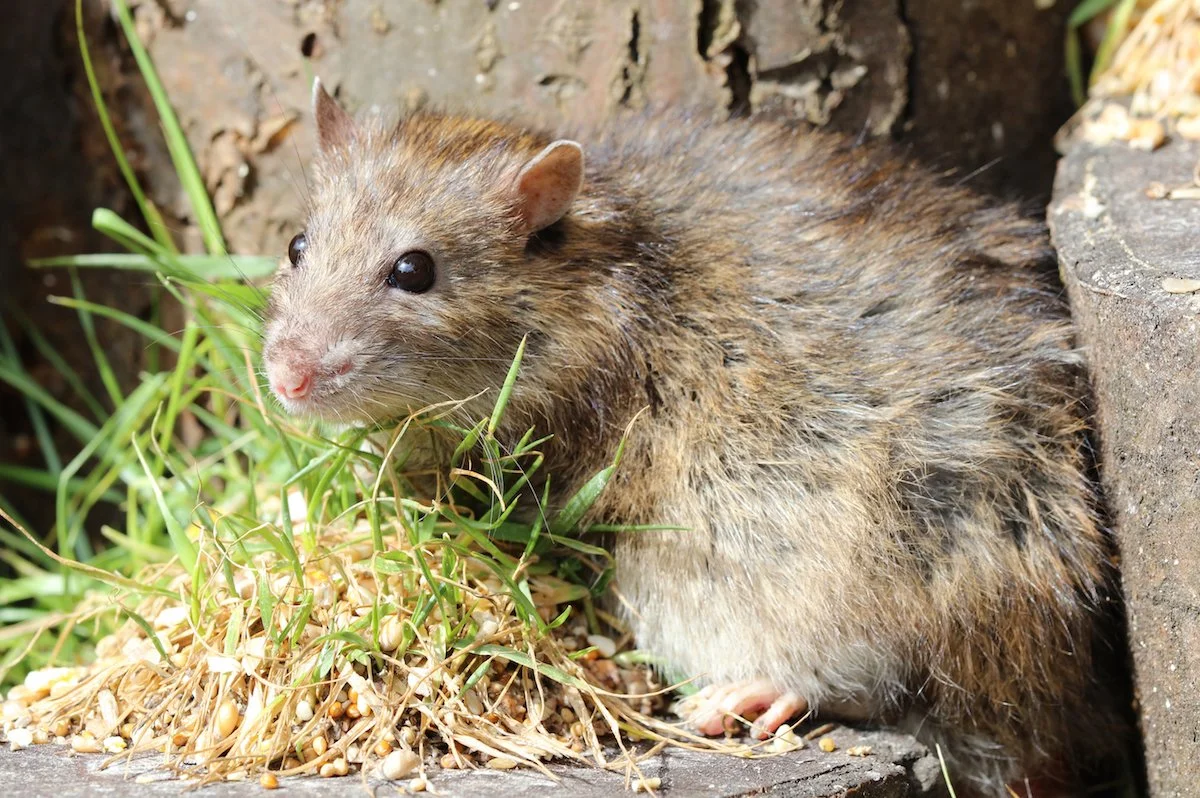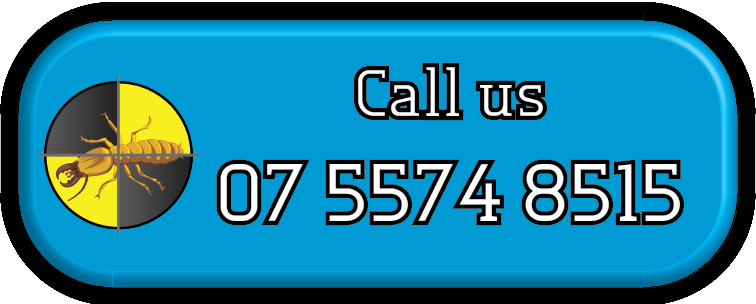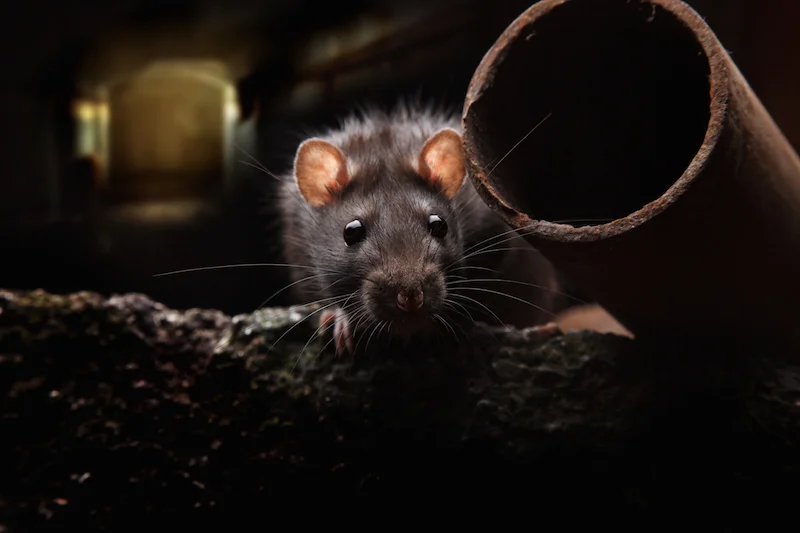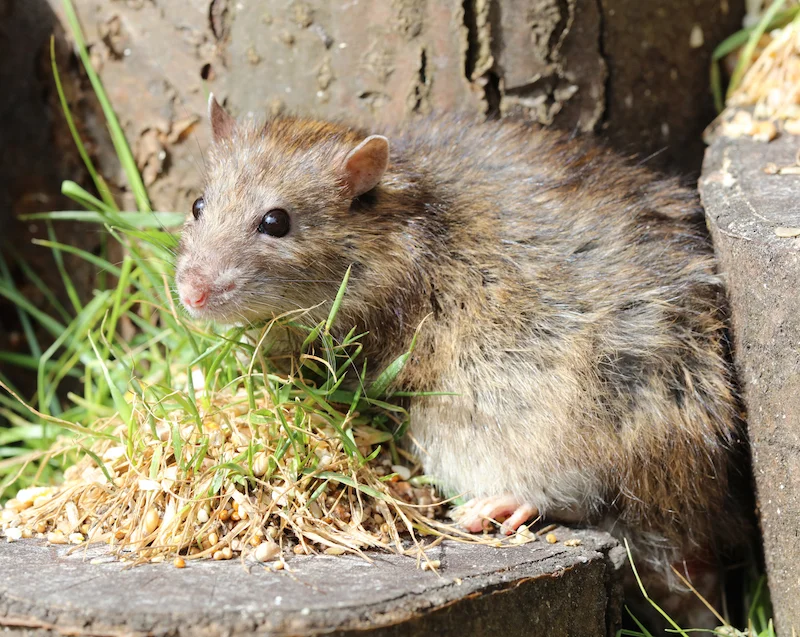Rodent Control Gold Coast
Specialist rodent control from the experts
For professional rodent control treatments with guaranteed elimination
Contact the rodent experts at Gold Coast Pest Services.
Safety is our No.1 Priority.
When you have a rodent problem, you want them gone and you want them gone fast! However, eliminating a rodent problem is often a bit more difficult than simply buying some bait from the hardware store, throwing it in the roof void and hoping the problem will be solved. Success in controlling rats and mice comes from understanding which rodent is causing the problem, applying the appropriate treatment and correcting the conditions that allowed the rodents to enter the building in first place, so that re-infestation does not occur.
Rodent treatments are a specialist treatment and therefore are a separate service to our general pest treatment.
Typically rodent control programs use baits that are toxic to other animals, so attention to safety is vital in any treatment. Gold Coast Pest Services have a range of products that allow bait to be applied safely or, in cases where baits may not be appropriate, we can utilise a range of alternative (non-bait) techniques to get control.
Whether at home or in a business, Gold Coast Pest Services can provide control programs to eliminate your rodent problem.
How do Gold Coast Pest Services Get Rid of Rats and Mice?
Rat Pest Control
Rat Control is a bit trickier than mice control, as there are two main types of pest rats - the roof rat and the Norway rat. The roof rat is more common and as its name suggests, tends to nest more in the roofs of buildings. Norway rats, also called the sewer rat tend to live and nest at ground level. With the two species having very different behaviours, this is why it is important to identify the species present before we start a treatment. Rats are also quite neophobic, which means they are frightened of new things. This means that baits may be ignored for a few days after placement, which is one of the reasons rat treatments may take longer than mice treatments.
Pest Control Mice
Mice control (unless there’s a plague) is relatively straight forward, as there is only one pest mouse species - the house mouse. Mice will live in burrows outside but will happily build their nests inside, in cupboards, in walls and even in furniture. Mice do not travel very far from the nest (normally less than 10m) so if you have a mouse problem, it could well be that their nest is in your house. The good thing about mice is that they are very inquisitive and so will readily try new food, such as rodent bait!). As a result, they are typically easier and quicker to control than rats.
Our Rodent Treatment Process
The first part of any rodent treatment is to carry out an inspection. It is vital to identify the species, map the areas of activity, understand how it is accessing the property and if possible locate the nest. The correct rodent program can then be put in place to solve the problem. This may involve the use of rodent baits or traps to control the non-native species, or traps to remove and re-home any native species.
A rodent treatments will require our qualified technicians to determine how many stations or traps are required depending on the size of the home, the surrounding environment and the severity of the infestation. For more involved problems or serious infestations, it may take several visits to gain control and sometimes an ongoing control program may need to be put in place.
The use of any rodent product not only takes into account the species, but any safety considerations – children, pets, food areas, etc. We always use lockable bait stations in our baiting programs and stations will be placed out of the reach of children and pets. However, sometimes this is not possible and so alternative techniques, such as traps, may need to be used.
To aid in the control and prevent future infestations, the recommended rodent-proofing and sanitation measures also need to be implemented.
Call our office for a quote on a rodent control treatment
What our customers say…
How to keep rats and mice out of your home
To prevent a rodent infestation, there are two main activities homeowners and business owners can carry out to minimise the chances of rats and mice taking up residence:
1) Rodent proof the building
Seal any holes / cracks in the floors, walls and roofing
Remove vegetation from the immediate perimeter of the building
Prune any branches overhanging the building
2) Improve sanitation
Place garbage in sealed, rodent proof containers
All stored food to be place in sealed, rodent-proof containers
Do not leave pet food outside
For chickens, rabbits and any other animal that is provided with grain foods, implement a feeding regime that minimises waste food that would be available to rodents.
More tips on how to rodent proof your home…
More information on rats and mice...
Rodents and possums (which are marsupials), are nocturnal animals. They feed on a wide range of food materials and are more than happy to live around buildings which provide many nesting areas in a warm, safe environment... with a readily available supply of food and water!
When they move into our buildings they are certainly unwanted guests disturbing us with their activities: causing physical damage to buildings and wiring, consuming and contaminating food and making noise. Rodents are associated with the spread of several diseases such as typhus, salmonella, Weil's disease and Rat-bite fever. These are either spread by the rats directly or by the fleas and ticks they carry. Their presence can also set off allergic reactions in sensitive individuals.
With the ability of rats and mice to breed quickly, numbers can quickly get out of control. If you suspect a rodent problem, quick action is key.
There are 3 main rodent pests that are commonly found in and around houses and commercial buildings. These are the common mouse, the roof rat (or black rat or ship rat) and the brown rat (Norway rat or sewer rat).
Black Rat or roof rat
brown rat or sewer rat
house mouse
Identifying the species is a bit trickier than comparing the rodent to these photos as colour and size can vary greatly.... and often you will not get more than a fleeting glimpse of the rodent (if you are lucky). Our inspections will look for other evidence, droppings, gnaw marks, damage and nesting sites. Depending on the species the rodents may be nesting in the roof, in the walls, in your cupboards or furniture or in burrows outside. With rats often travelling up to 400m from their nest to their feedings sites, if often takes a bit of detective work out what is going on and then design the appropriate treatment program.
There are four native animals whose activities may also be confused with these rodents. Antechinus can be confused with the house mouse, the native bush rat can be confused with the black rat, and sometimes even brush-tailed and ting-tailed possums can be confused with the brown rat.
Of course it is illegal to harm any native wildlife, so identification and treatment of suspected rodent problems is a job best left to the professionals.
Give us a call to see how we can help solve your rodent problems
We also hold a possum removal licence, so if you suspect to have a possum in the roof (you will know, they're very noisy!), please give us a call
More Gold Coast Pest Services.










